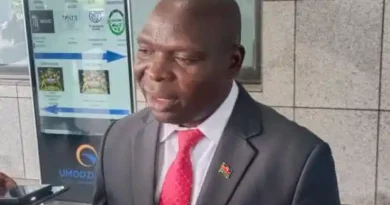Zambia Rolls Out 2023 Education Curriculum, Prioritizes Infrastructure and Teacher Recruitment
The Ministry of Education has officially commenced the phased implementation of the 2023 Zambia Education Curriculum, a transformative initiative aimed at equipping learners with 21st-century skills to drive national development.
Presenting a ministerial statement to Parliament on Thursday, Education Minister Douglas Syakalima highlighted that the curriculum, developed through broad stakeholder consultations, aligns with Zambia’s Vision 2030 and the Eighth National Development Plan.
“The progressive 2023 Zambia Education Curriculum has been successfully developed through a consultative process and is being implemented in a structured manner. Unlike the 2013 curriculum rollout, which faced challenges, this time, we are well-prepared,” Syakalima stated.
The minister confirmed that 30,000 copies of the curriculum framework have been printed and distributed, while syllabi have been piloted, validated, and approved. Over 86,000 teachers designated for Early Childhood Education, Grade One, and Form One have undergone orientation for effective implementation.
To address secondary school placement, Syakalima noted that no automatic progression from Grade 7 to Form 1 has been in place since 2022. Provincial Education Officers have been directed to prioritize boarding and day secondary schools, with some basic schools being upgraded to accommodate more learners.
“School selection considers infrastructure, teacher availability, and accessibility. For example, Katukauchu Basic School in Nakonde has been upgraded due to its distance from other schools and flooding challenges during the rainy season,” he explained.
The government is also constructing 45 weekly boarding facilities to support learners facing accessibility challenges and has expanded financial support through Constituency Development Fund (CDF) bursaries.
In terms of infrastructure, Syakalima announced that 82 secondary schools have been completed, with 220 stalled projects being revived. By December 2025, an additional 46 schools will be completed, along with 120 newly constructed secondary schools. Early Childhood Education (ECE) is also receiving significant investment, with 169 ECE hub centers and 145 satellite learning centers under construction.
Budgetary allocations reflect the government’s commitment, with ECE funding increasing from K155 million in 2023 to K233 million in 2025. Secondary education funding, which dropped slightly in 2024, has surged to K1.87 billion in 2025—a 78% increase.
To sustain these initiatives, the ministry is strengthening financial resource mobilization and partnerships with development partners. Recruitment of teachers in specialized subjects, particularly in rural areas, remains a priority.
The minister also reminded parents and guardians of their legal duty to ensure children attend school, warning that non-compliance could result in fines or imprisonment under the Education Act of 2011.
As Zambia rolls out the 2023 Education Curriculum, Syakalima urged all stakeholders—including teachers, parents, and lawmakers—to support the initiative.
“This curriculum is a visionary document designed to create a globally competitive workforce. With strategic investment and collaboration, Zambia is poised to build a strong and inclusive education system,” he concluded.



